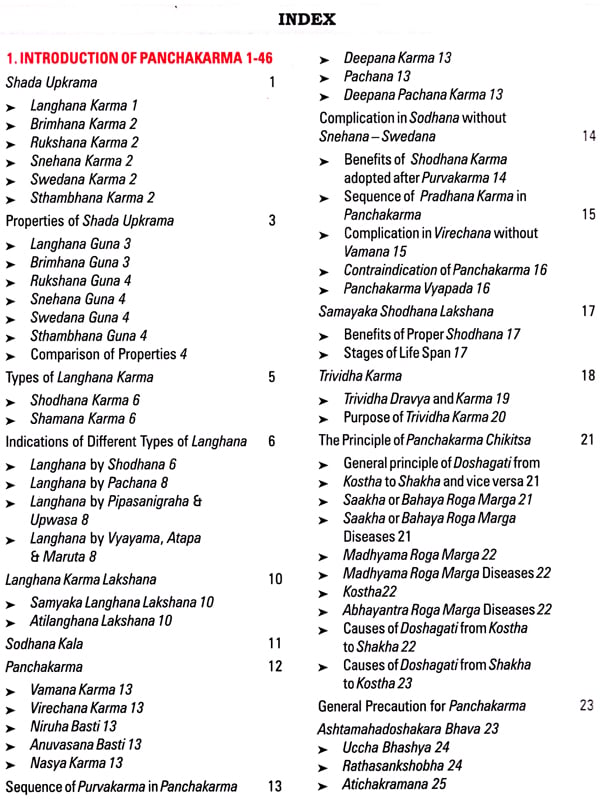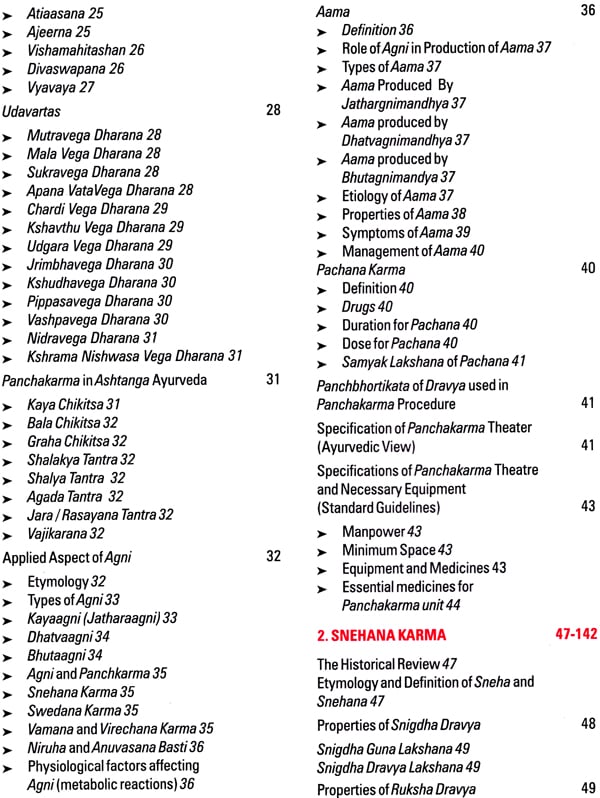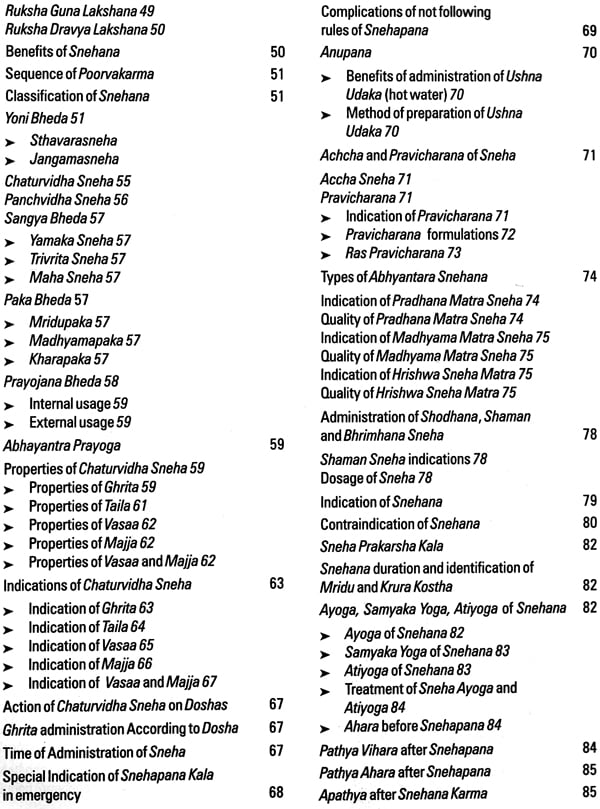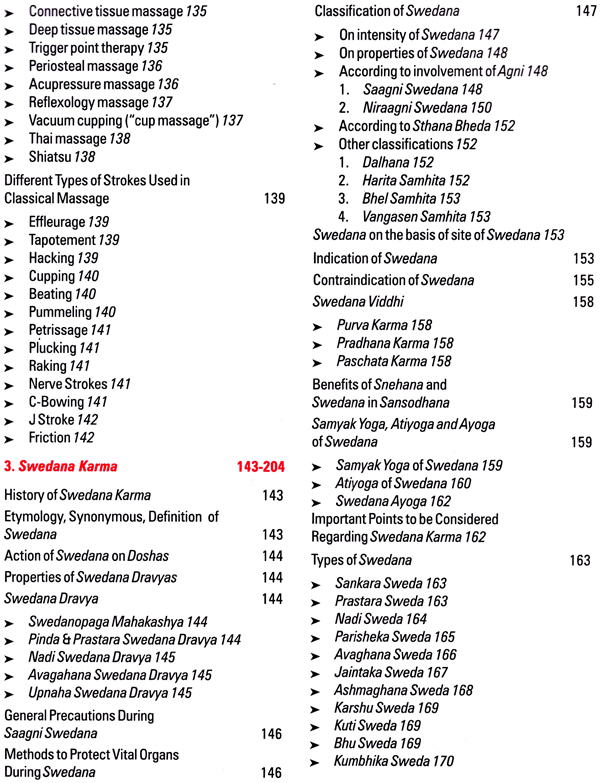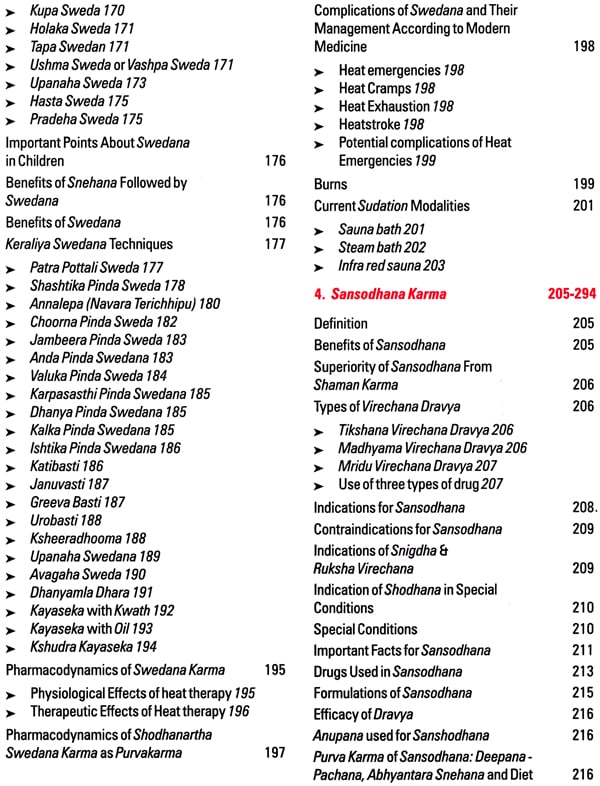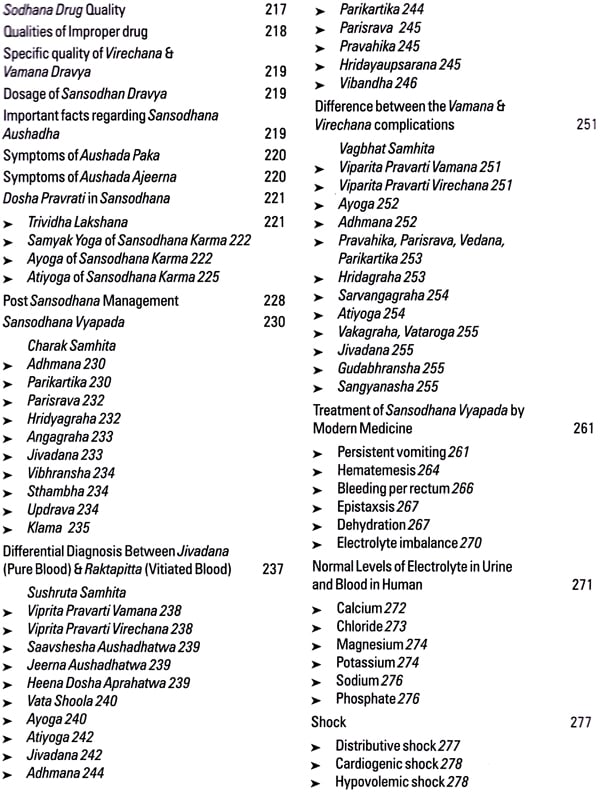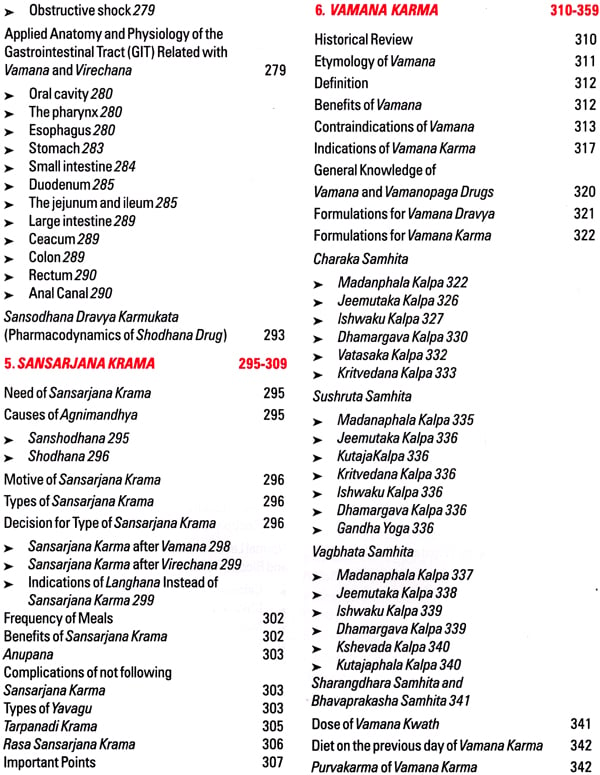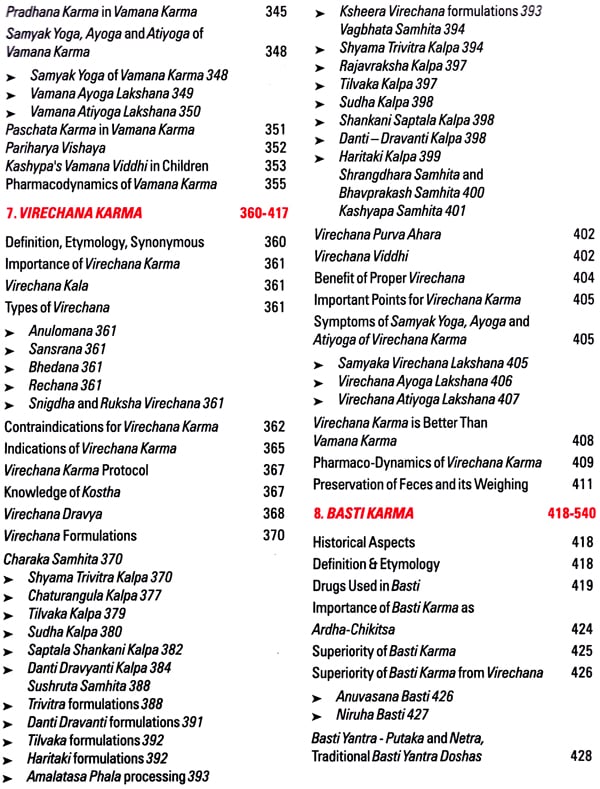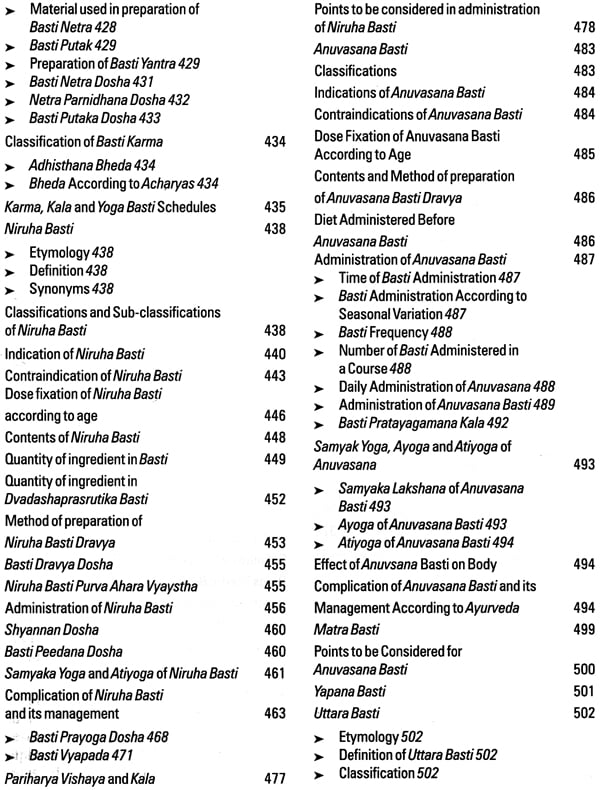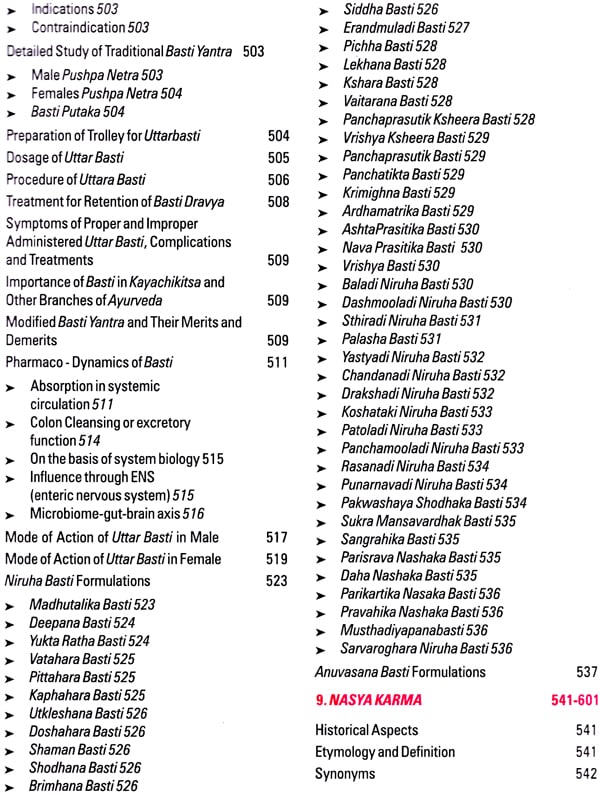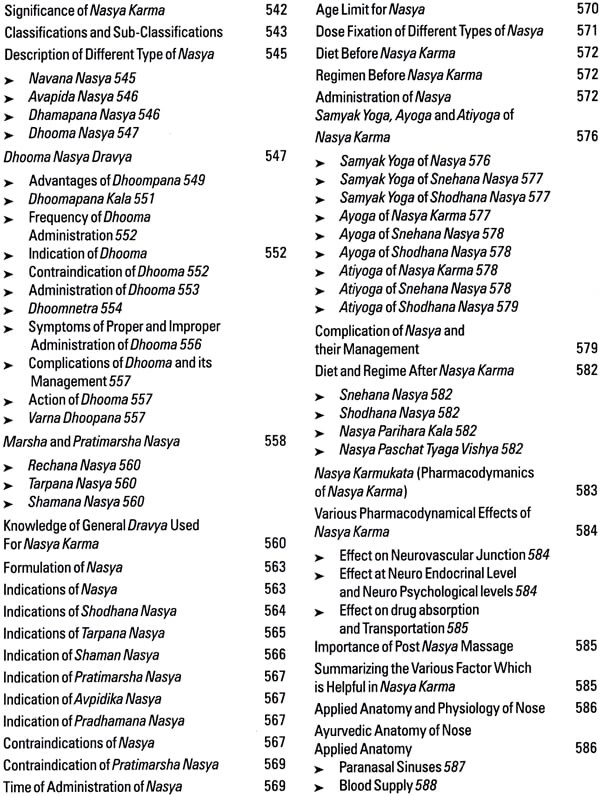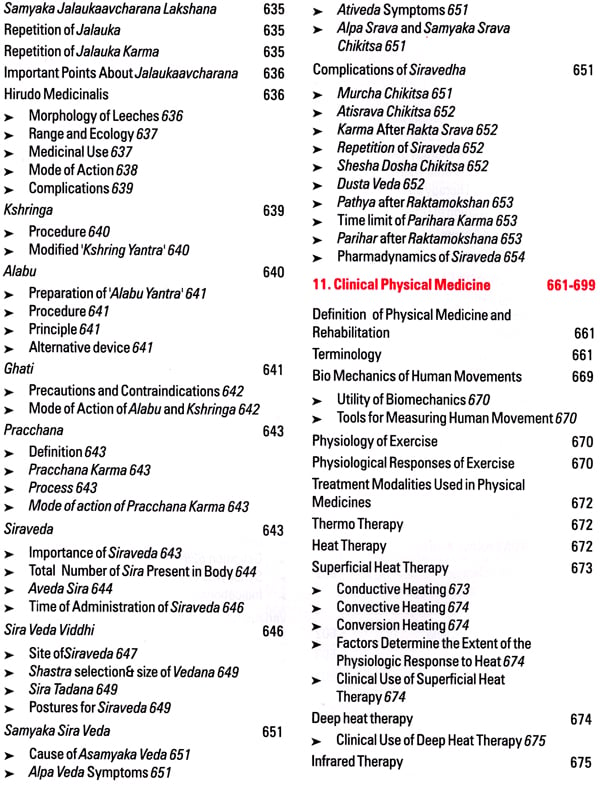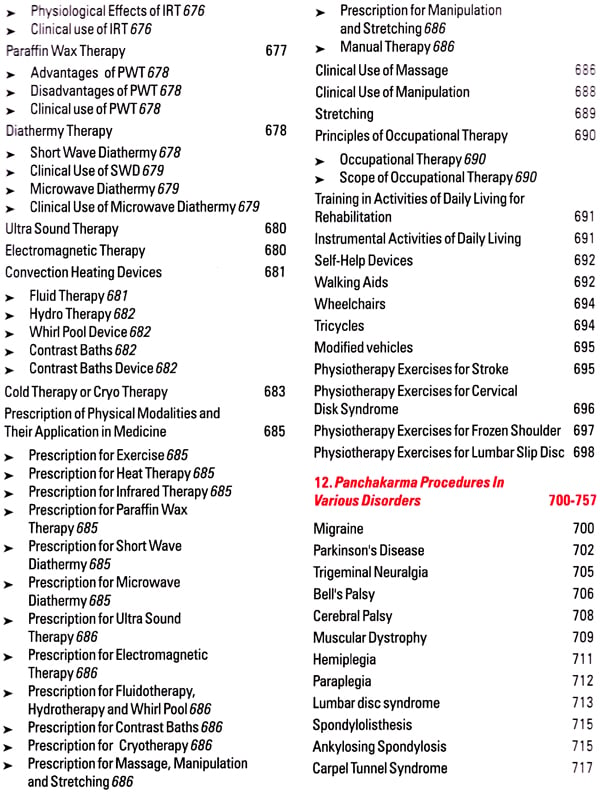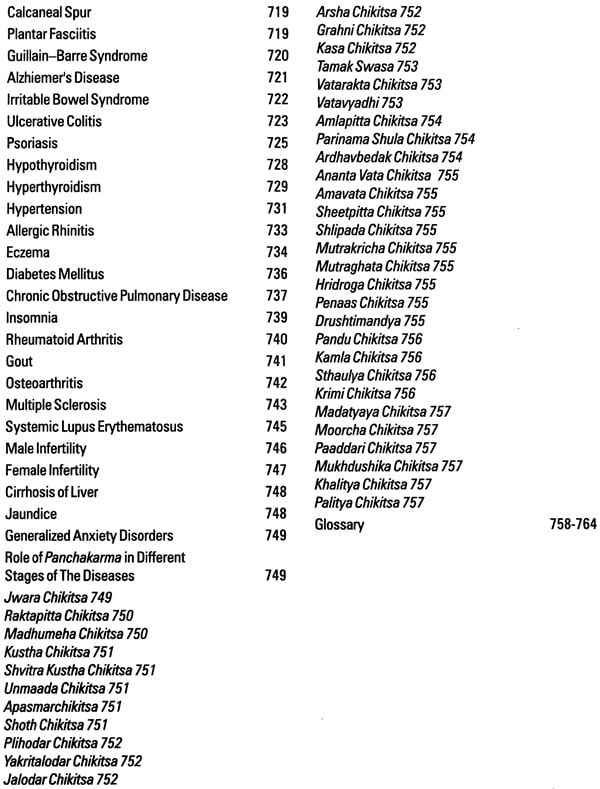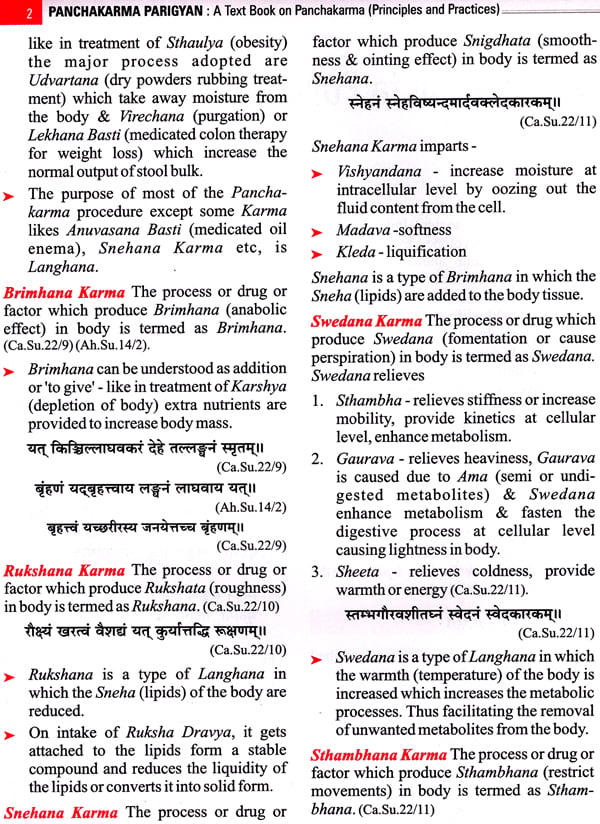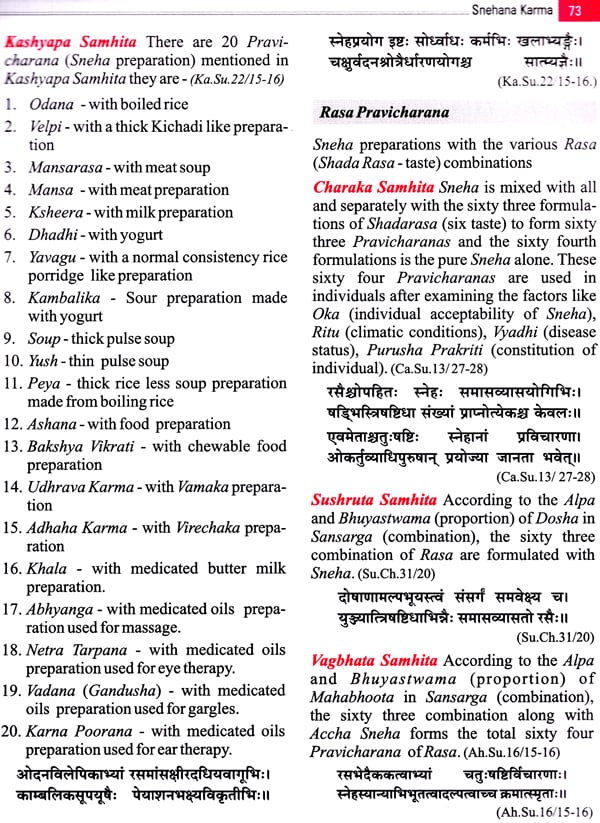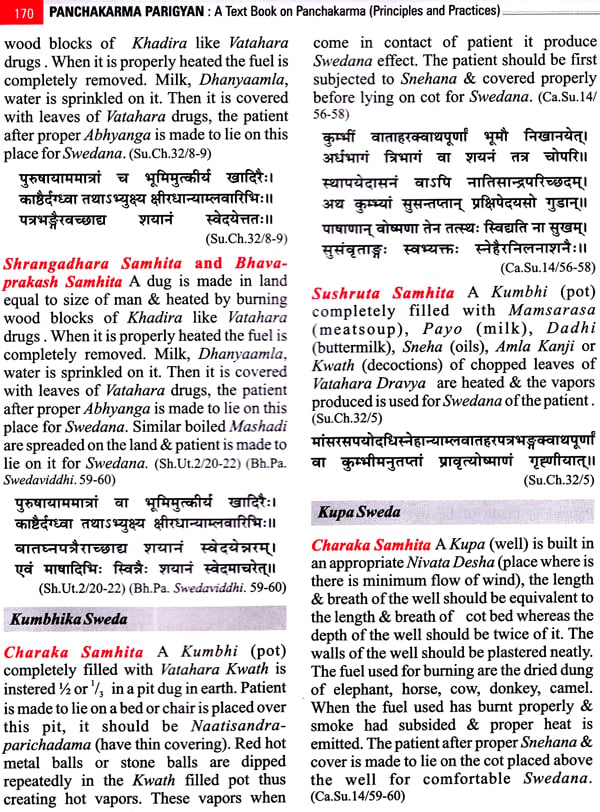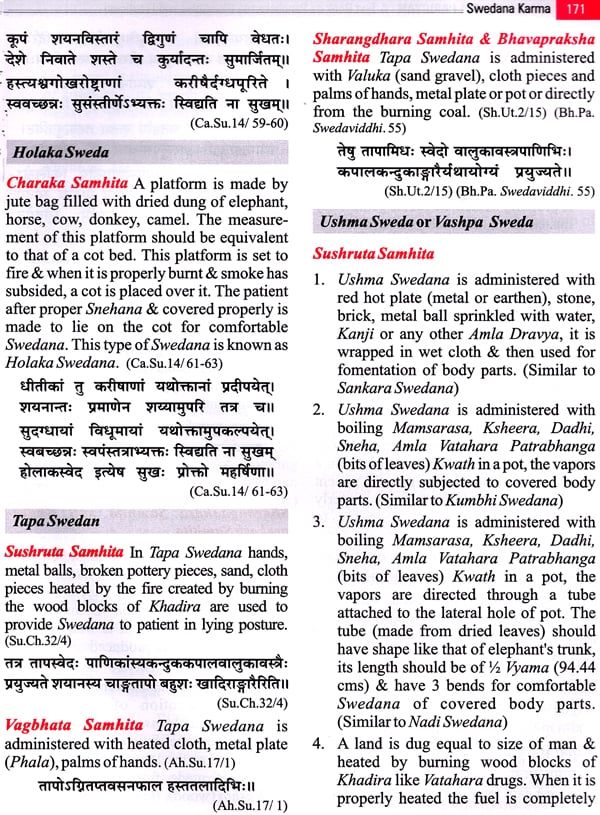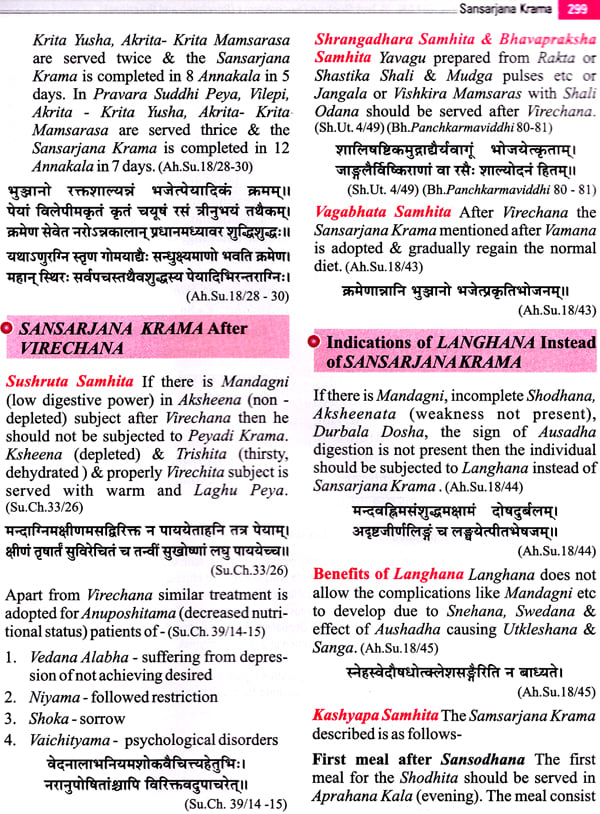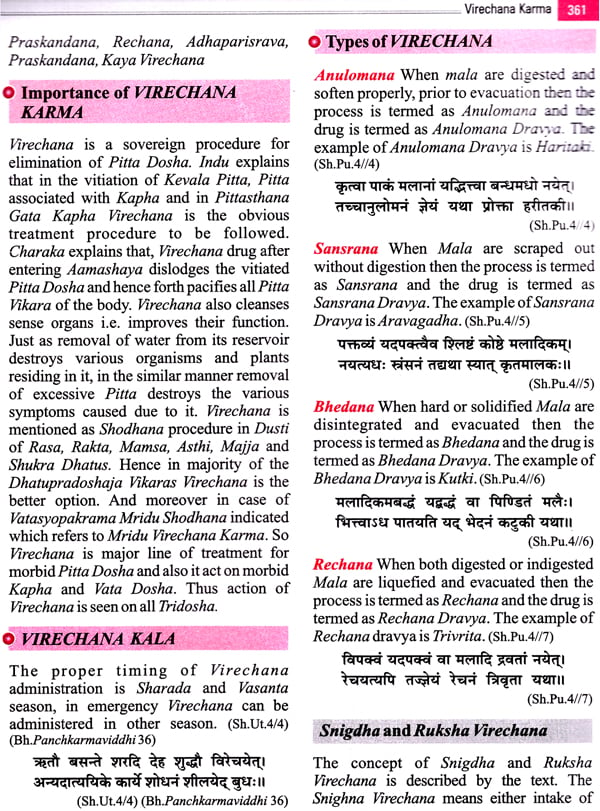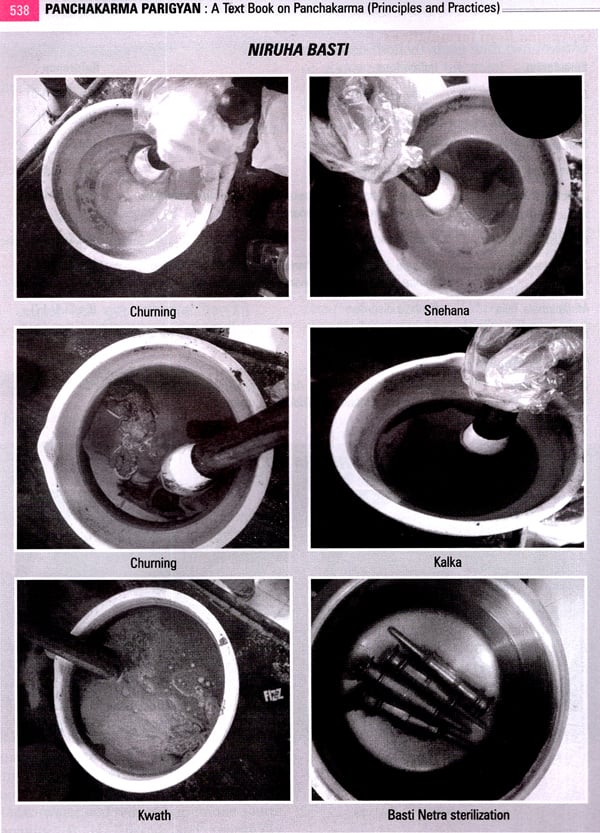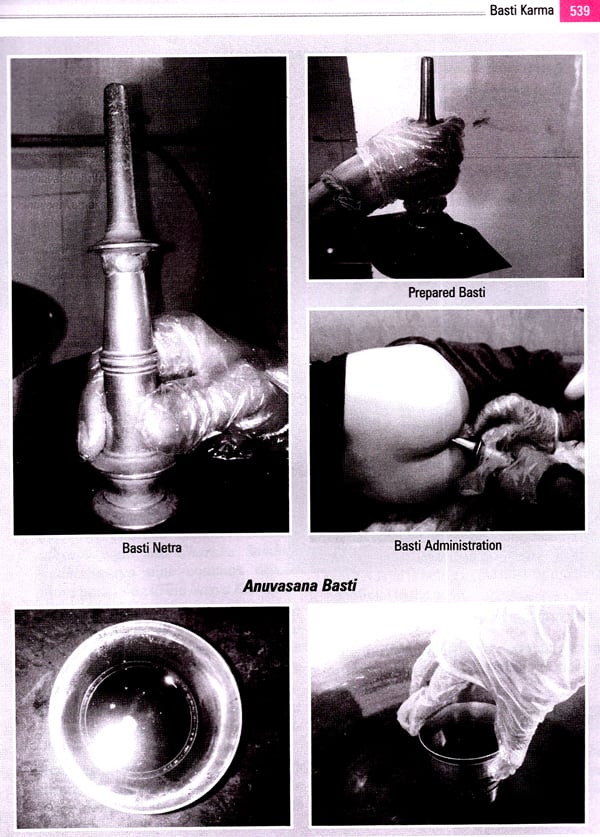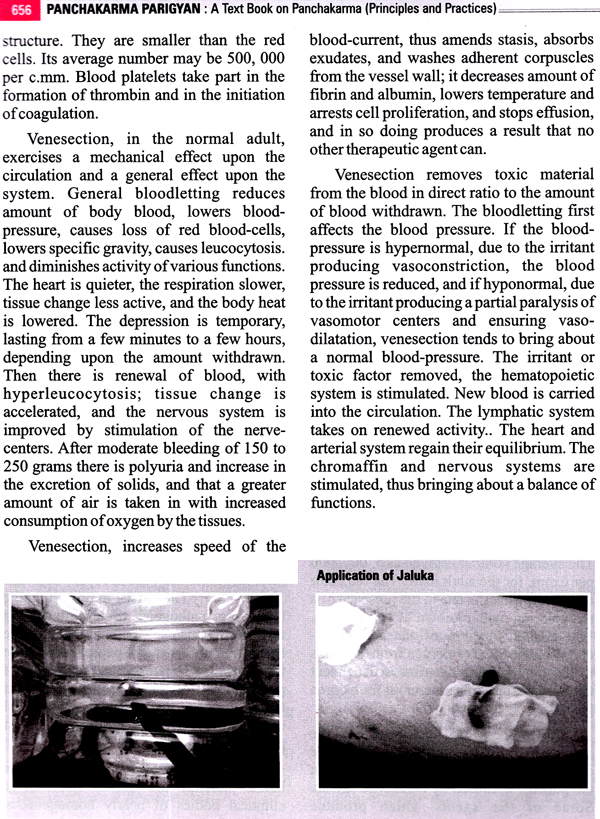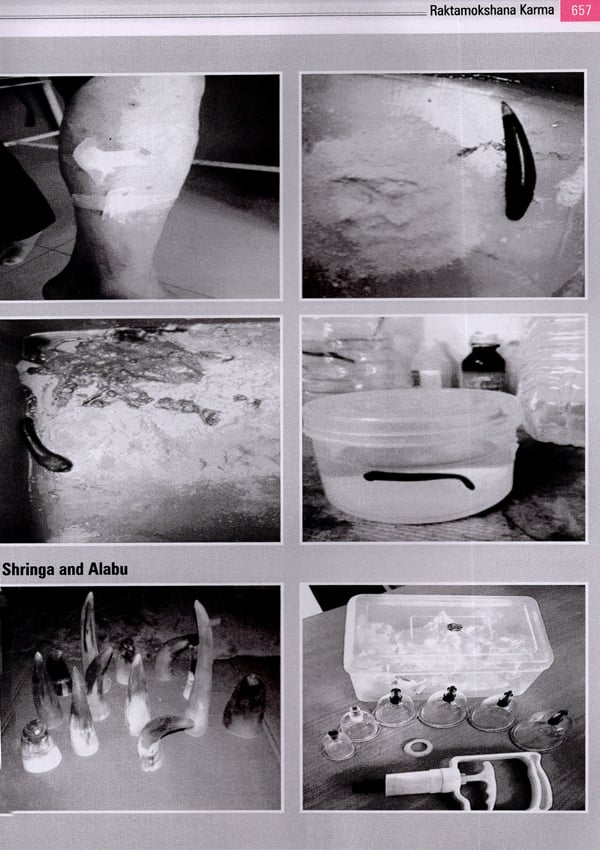
Panchakarma Parigyan - A Text Book on Panchakarma (Principles and Practices)
Book Specification
| Item Code: | NAT003 |
| Author: | Vd. Sarvesh Kumar Singh and Vd. Kshipra Rajoria |
| Publisher: | Chaukhambha Prakashan, Varanasi |
| Language: | ENGLISH |
| Edition: | 2019 |
| ISBN: | 9789388299305 |
| Pages: | 788 (25 B/W Illustrations) |
| Cover: | PAPERBACK |
| Other Details | 9.50 X 7.00 inch |
| Weight | 1.23 kg |
Book Description
Vd. Sarvesh Kumar Singh has completed his B.Sc. in 2000 from B.S.A. College, Mathura (Agra University), B.A.M.S. in 2006 from Government Ayurvedic College, Varanasi (S.S.U) and M.D (Panchakarma) from National Institute of Ayurveda, Jaipur in 2009. He has served as Lecturer (S.S.M.D Ayurvedic Medical College & Hospital Moga, Punjab), Consultant (C.C.R.A.S) and Clinical Registrar (Ch. Brahm Prakash Ayurveda Charaka Sansthan, New Delhi). In year 2011 he has joined as Lecturer in P.G Department of Panchakarma National Institute of Ayurveda, Jaipur and currently working as Assistant professor and is a reputed Physician. He has published nine papers in PubMed indexed journals, 41 scientific papers in peer review journals of repute and co-authored 1 book. He has attended nearly 53 National, International seminars, workshops, R.O.T.P, C.M.E as paper presenter, guest speaker, and resource person. He has Guided 5 and co guided 8 M. D thesis and working as Principle Investigators and Co-Principal Investigators of various national projects of importance.
Vd. Kshipra Rajoria has completed her B.A.M.S and M.D (Panchakarma) from National Institute of Ayurveda, Jaipur in 2010. She has served as Ayurvedic medical officer (Ch. Brahm Prakash Ayurveda Charak Sansthan, New Delhi), Lecture (S.S.B.Ayurvedic Medical College & Hospital Renwal Jaipur), Panchakarma consultant (M.J.F Ayurvedic Medical College & Hospital Chomu Jaipur). In year 2017 she has joined as Panchakarma Vaidya in P.G Department of Panchakarma National Institute of Ayurveda, Jaipur and currently working as Lecturer. She has published nine papers in PubMed indexed journals, 36 scientific papers in peer review journals of repute and co-authored 1 book. She has attended nearly 32 National, International seminars, workshops, ROTP, CME as paper presenter, guest speaker and resource person. She is Guide/ Co- guide of 8 M. D thesis and Co-Principal Investigators of project of Department of Science and Technology.
The present book of our is a tribute to our Guru ji. Vd. Radhey Shyam Sharma Hon'ble Vice Chancellor Dr. SR Rajasthan Ayurveda University Jodhpur for fulfillment of his vision to create a complete literature of Panchakarma Chikitsa which should be unique of its kind. This work should serve the foundation for all the future works of academic, clinical and research arena.
This book comprises of twelve units which explores the various topics of Panchakarma Chikitsa at the deepest level. The First unit deals with the introductory part which explains the origin of concept of Panchakarma Chikitsa from the Shadaupkarma Chikitsa. The unit contains the description of Langhana Karma and details Shodhana and Shamana Karma. Under a specific heading there is explanation of why the Raktamokshana is not a part of Panchakarma. In addition to the above there is description of a unique concept described in Kashyapa Samhita, the Shodhana Shamana Karma under the Trividha Karma. The specification of Panchakarma theater as per the Ayurvedic guidelines and Standard guidelines will be beneficial for the clinicians. Apart from these the basic foundation topics of Panchakarma like principles of Doshagati, precautions (Ashtamahadoshkara Bhava, Udavartas), importance of Panchakarama in Ashtanga ayurveda and applied aspects of Agni and Aama are also detailed.
The second unit deals with the Snehana Karma which is the first Karma which prepares the body for the Panchakarma Chikitsa. Apart from the detailed description of Snehana Karma, the various topics included are the Practical application and pharmacodynamics of Snehana Karma along with Knowledge of different western massage techniques and strokes.
The third unit deals with the Swedana Karma which is the final preparatory karma for most of the Panchakarma Chikitsa. This chapter describes the Swedana Karma in detail along with the practical application of various types of Swedana Karma, Pharamacological action of Shamananartha and Shodhanartha Swedana and current sudation modalities.
The fourth unit deals with the introduction to Vamana and Virechana Karma as Sanshodhana Karma in detail. In this chapter treatment of Sansodhana Vyapada by modem medicine and Applied anatomy and physiology of the gastrointestinal tract (GIT) related with Vamana and Virechana is also described. The fifth unit deals with Sansarjana Krama. It describes the Peyadi Krama, Tarpanadi Krama and Rasa Sansarjana Krama in detail along with the Apathya avoided after the Shodhana Karma. The next four chapter sixth to ninth unit deals with the Vamana Karma, Virechana Karma, Basti Karma and Nasya Karma in detail along with the various important topics like their Practical Application, Pharmacodynamics. Preservation of feces and its weighing, Modified Basti Yantra, their merits and demerits, Aroma therapy, Trans nasal administration of drug, Recent advances in nasal drug delivery and formulations.
The tenth unit and eleventh unit deals with the Raktamokshana Karma and Clinical Physical medicine. The twelfth unit deals with the Panchakarma Procedures in various disorders which will be of importance for the clinical medicine. At the end of the book we have added a glossary of plants with their botanical name used in Panchakarma Chikitsa.
On the completion of this work there 1s still a feeling of incompleteness, and a doubt that we have lived up to the expectation of our Guruji. All the more it is a positive feeling for an unending quest. As for now we have concluded our work for the present edition and planning for more enriched editions in coming future. With hope of feedbacks for improvement we share our work with the Ayurveda fraternity.
**Contents and Sample Pages**
